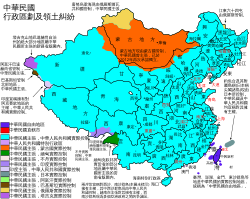從Wikipedia 的Zen*,可知約19世紀中葉,從日本傳美國。
胡適之先生1926~27年在英國給
The Times Literary Supplement 寫 鈴木大拙
Daisetsu Teitaro Suzuki的Essays in Zen Buddhism: First Series (1927), New York: Grove Press.寫"一長句"之書評。
後來50年代初胡適到檀香山開中西哲學大會,發表的禪學史英文論文,當然採用Chán。
*
https//en.wikipedia.org/wiki/Zen
| Zen | |||
| Chinese name | |||
|---|---|---|---|
| Traditional Chinese | 禪 | ||
| Simplified Chinese | 禅 | ||
| |||
| Vietnamese name | |||
| Vietnamese | Thiền | ||
| Hán-Nôm | 禪 | ||
| Korean name | |||
| Hangul | 선 | ||
| Hanja | 禪 | ||
| |||
| Japanese name | |||
| Kanji | 禅 | ||
| |||
| Sanskrit name | |||
| Sanskrit | ध्यान (dhyāna) | ||
| Part of a series on |
| Zen Buddhism |
|---|
 |
| Part of a series on |
| Mahāyāna Buddhism |
|---|
 |
| Part of a series on |
| Buddhism |
|---|
 |
這段缺鈴木大拙 Daisetsu Teitaro Suzuki,有點疏忽
Zen in the West[edit]
Although it is difficult to trace the precise moment when the West first became aware of Zen as a distinct form of Buddhism, the visit of Soyen Shaku, a Japanese Zen monk, to Chicago during the World Parliament of Religions in 1893 is often pointed to as an event that enhanced the profile of Zen in the Western world. It was during the late 1950s and the early 1960s that the number of Westerners other than the descendants of Asian immigrants who were pursuing a serious interest in Zen began to reach a significant level. Japanese Zenhas gained the greatest popularity in the West. The various books on Zen by Reginald Horace Blyth, Alan Watts, Philip Kapleau and D. T. Suzuki[citation needed] published between 1950 and 1975, contributed to this growing interest in Zen in the West, as did the interest on the part of beat poets such as Jack Kerouac, Allen Ginsberg and Gary Snyder.[227] In 1958, the literary magazine Chicago Review played a significant role in introducing Zen to the American literary community[228] when it published a special issue[229] on Zen featuring the aforementioned beat poets and works in translation.











